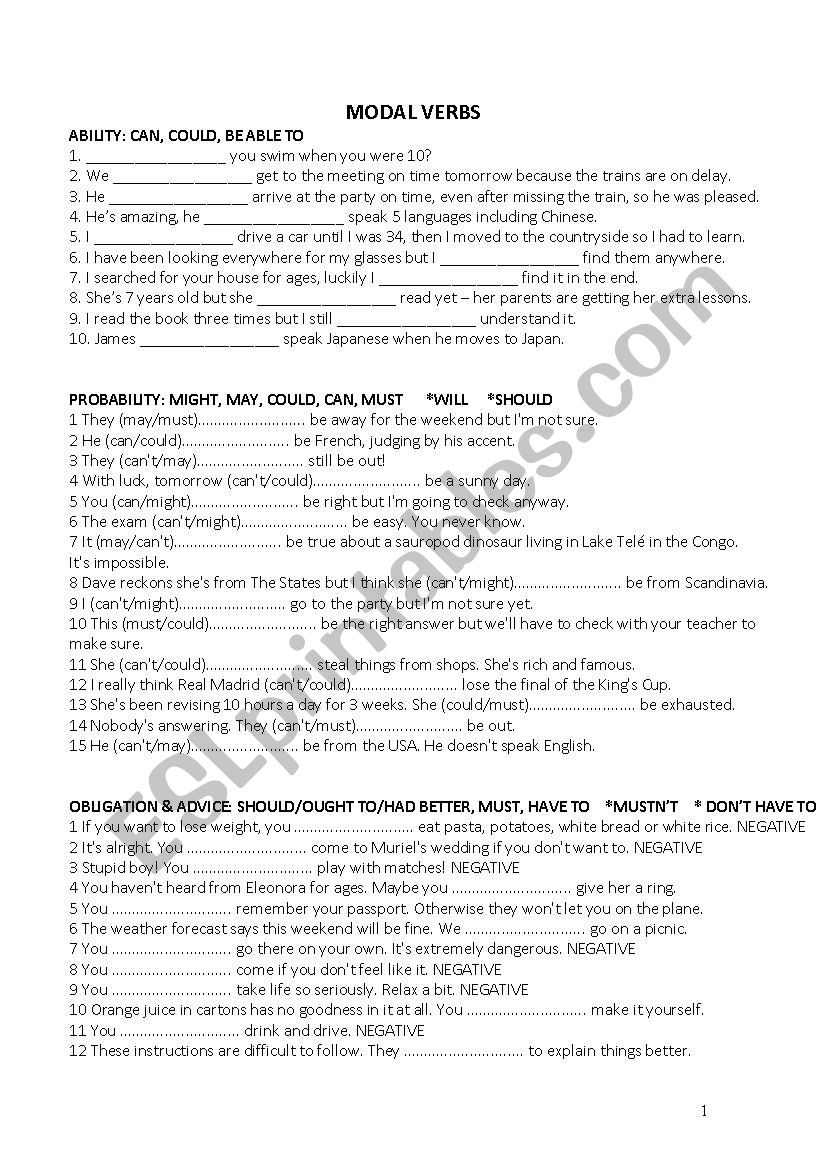

Ok, I admit that he might be really good at shooting but he never passes the ball, it’s so frustrating.It was really cold last night so the roads could be icy.Shhh! Be quiet, my parents might be asleep already.Let’s watch TV, there might be something good on.Don’t drive so fast, you could have an accident.Don’t forget to bring an umbrella, it might rain.I’m going to the bar after football so I might be late home.You might at least say hello when you get home instead of going straight to your bedroom.You could at least put your dirty dishes in the sink.You might at least pick up your dirty clothes.Match them with the different meanings they express in the box at the bottom. Look at the sets of different expressions using might and other modal verbs. In spite of the fact that it rained, we played tennis.Mighty-might-key Download Mighty Might – Student Handout In spite of it raining, we played tennis. In spite of is used exactly as despite is used. We can use despite with a noun following, a gerund verb or the expression "despite the fact that".ĭespite the fact that it rained, we played tennis. Nevertheless is used exactly as however is used. However is used at the start of a second sentence. Though is used exactly as although is used.Įven though is used exactly as although is used. This can come at the beginning or in the middle of one sentence. But each one has its own particular set of rules. There are many ways in English of joining two contrasting ideas together. She must have accepted his marriage proposal. We use must when we are convinced, totally sure about something. We are not sure if it is true or not, but it is possible. May, Might and Could can be used to say something is possible. Your teacher phoned me to see where you were! Winston can't be at the theater tonight, I saw him in a café ten minutes ago. We use can't in these situations to say that something is not possible: Here are examples in the present and past using each of these modals: The modal verbs we use in these sentences are can't, may, might, could and must. We can use modal verbs to express doubt and certainty in certain situations in the present and past.


 0 kommentar(er)
0 kommentar(er)
